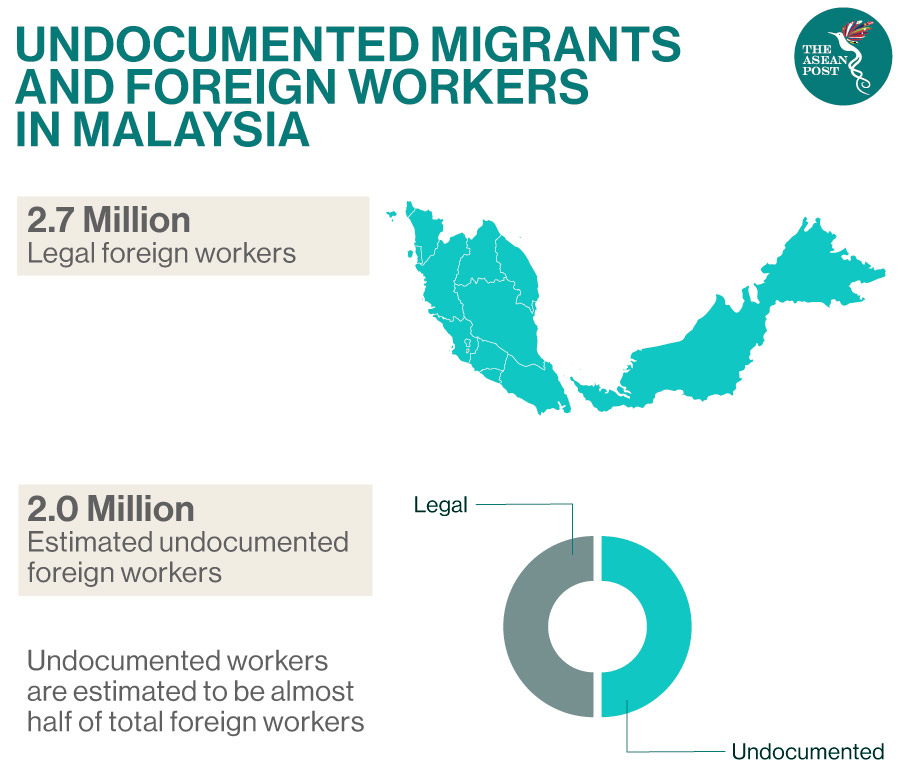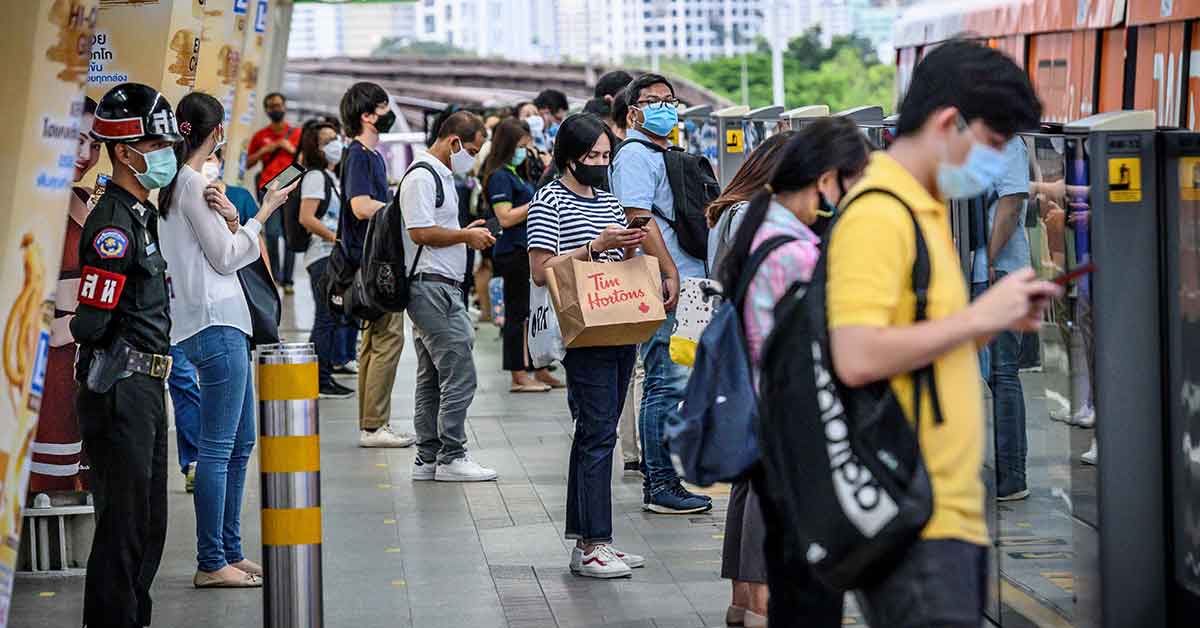The new coronavirus which emerged just a few months ago in Wuhan, China has infected over 4.2 million people today. Before the World Health Organisation (WHO) announced that the disease would be called COVID-19 – many people, authorities and even the media associated the virus with Wuhan and with China. This includes The ASEAN Post for which we apologise for the error on our part.
Outbreaks have always been associated with places and regions, for example the Spanish Flu and more recently, the Middle East respiratory syndrome (MERS). Many are unaware of the implications of associating a country with a disease. The repercussions can be widely seen with COVID-19, which is still affiliated with China by some irresponsible parties.
From the first reported cases of COVID-19 outside of China, anti-Chinese sentiments have been growing in different parts of the world.
Sinophobia
Last February, a photo of a man with a blackened eye and swollen lip was circulated on social media. The picture was of a 23-year-old Singapore student of Chinese ethnicity who was studying in London, United Kingdom (UK). Jonathan Mok was a victim of a hate crime – associated with the COVID-19 virus.
"The guy who tried to kick me then said, 'I don't want your coronavirus in my country', before swinging another sucker punch at me, which resulted in my face exploding with blood (from my nose)," wrote Mok on a Facebook post.
According to Stop Hate UK, an organisation raising awareness and understanding of discrimination – Mok’s case is one of numerous incidents that have occurred in the UK during the COVID-19 pandemic.
"Stop Hate UK has recently received an increasing number of calls, across our helpline areas, from people experiencing racism, discrimination and verbal abuse, arising from perceptions that they are members of the Chinese community and therefore likely to be carriers of the coronavirus," said the organisation in a statement.
The UK is a popular country for higher education among Asians. It was reported that the majority of international students coming from non-European countries are from China, followed by India, Hong Kong and Malaysia.
Anti-Chinese remarks are not only common in the West, but also in Southeast Asia. According to local media report, a restaurant in Chiang Mai in Thailand – a hot tourist destination for Chinese nationals, placed a notice in its entrance that the eatery does not accept Chinese customers. A picture of the notice went viral online and prompted Tourist Police to instruct the removal of the sign. Nevertheless, it was reported that the Tourist Police asked the restaurant owner to change the notice to “we run out of food” in Chinese instead, which she complied.
It was not the first reported incident of Chinese nationals being denied entry into a premise.
A bar in Ho Chi Minh City, Vietnam also banned Chinese customers in February, in order to “protect the health of our guests”, read a sign on the door of local bar Chaos Lounge. It is uncertain if the notice is still displayed at the bar. Chaos Lounge is not the only business reported to refuse serving Chinese nationals. The trend was also reported in restaurants in Japan and South Korea, where Chinese customers are denied entry.
Another racist sentiment that sparked controversy is a series of Facebook posts by a Singapore religious teacher who claimed that the coronavirus was a retribution by God against the Chinese for their oppressive treatment of Muslim Uighurs in China’s Xianjiang province. Following news reports that the coronavirus could possibly spread through faeces, the teacher – Abdul Halim Abdul Karim also said in a separate private post that Chinese people are not as hygienic as Muslims.
Abdul Halim Abdul Karim received major backlash from members of the public and Singapore’s Home Affairs and Law Minister, K Shanmugam – who described his posts as “thoroughly racist”. The religious teacher has since apologised for his comments.
Islamophobia
The COVID-19 pandemic has seen a rise in Sinophobia around the world. Nevertheless, in India, the country has seen Islamophobic content on social media – linking the outbreak to Muslims.
In mid-March, a group of Tablighi Jamaat followers, an Islamic missionary movement – had gathered for a religious event in the Hazrat Nizamuddin area of New Delhi. It was reported that many of the attendees had come from other countries with high COVID-19 cases at the time. Over 8,000 Jamaatis visited Nizamuddin in early March, said the Indian government. This resulted into a soar of infections among attendees. To date, over 70,000 COVID-19 cases have been reported in India.
Hashtags such as “corona jihad” and “corona terror” have been trending on local social media. It was reported that the country has seen widespread attacks on Muslims, including farmers driven out of villages and other beaten by angry mobs. Misinformation in WhatsApp messages accusing the group of deliberately spreading the virus has further escalated the conflict.
“The hate towards the community (Muslims) seems to have increased because other people feel they are spreading the virus. Because of this it has become unsafe for our staff to visit some areas and we have to take police with us,” said Kiran Dighavkar, an assistant commissioner at the Municipal Corporation of Greater Mumbai, the main civic authority for the city.
According to media reports, a cancer hospital in India is under investigation after declaring that it would only admit Muslims for treatment if they can prove they do not have the COVID-19 virus.
Xenophobia
On 1 May, hundreds of foreigners and refugees were arrested in a migrant crackdown on COVID-19 red zones in Malaysia. Heidy Quah, founder of Refuge For The Refugees (RFTR) – an organisation advocating for refugee children, said kids as young as four had been picked up in immigration raids. Authorities confirmed that 586 undocumented migrants were arrested including Myanmar’s Rohingya refugees.
Recently, Malaysia has seen a rise in xenophobic sentiments against the Rohingya, accusing them of being a burden on state resources.
A few anti-Rohingya petitions were posted online, demanding that they be deported from Malaysia. One petition even gathered over 20,000 signatures before it was taken down as it was considered hate speech.
"We, the Rohingya refugees in Malaysia, are worried and in a state of fear due to the growing negative sentiments against us as a result of such statements,” said Rohingya groups.

The International Labour Organisation (ILO) warned that the arrest and detention of undocumented migrants will have negative consequences in the fight against the pandemic. The ILO also stated that the fear of sanctions for immigration violations could push undocumented migrant workers further into hiding and prevent them from seeking treatment.
Despite increasing concerns from rights groups regarding detained migrants and the wellbeing of others – many Malaysians have applauded the move by authorities on social media.
The government of Malaysia had recently ordered that all migrant workers be tested across the country, to avoid a similar situation currently occurring in neighbouring Singapore. The island-state has reported over 23,000 COVID-19 cases, a majority of whom are migrant workers.
In a video statement by Amnesty International on Twitter, the agency had called for ending misinformation, stigmatisation and hate, especially during this pandemic with the hashtag “ProtectEveryone”.
“We must stop stigma and hate. It’s easy to blame, it’s easy to politicise, it’s harder to tackle a problem together and find solutions together. We will all learn lessons from this outbreak, but now is not the time for reclamations or politicisation,” said WHO Director-General Tedros Adhanom Ghebreyesus.
Related articles:
